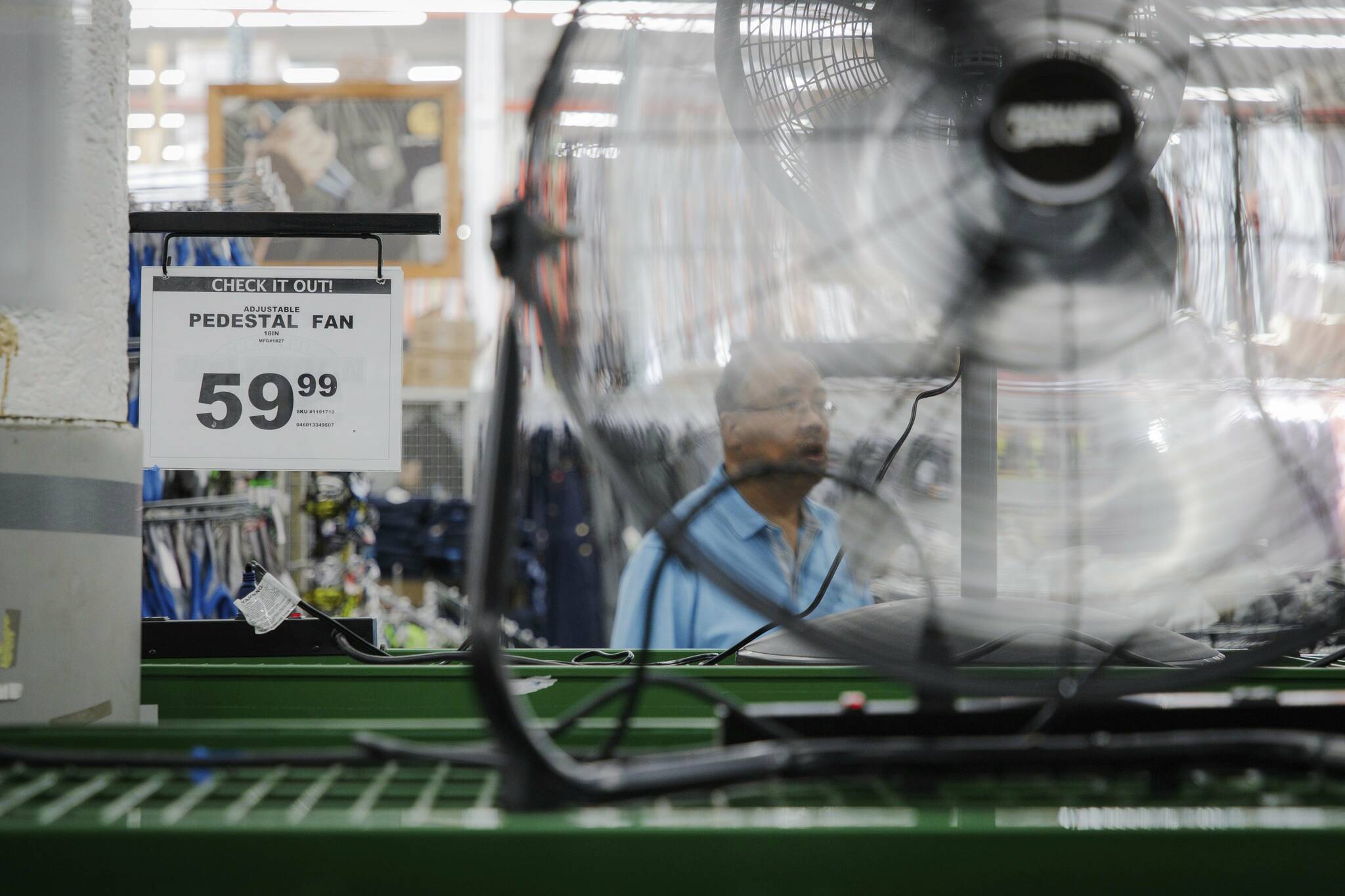B.C. is in a “much better place” to prepare for extreme heat conditions after the deadly 2021 heat dome – but more can still be done – says a scientific director with the B.C. Centre for Disease Control.
While this weekend isn’t forecasted to be a heat dome, special weather statements have been issued for most of the province for “unseasonably hot weather,” beginning Friday (May 12) and extending to Tuesday in coastal regions and Wednesday in the Interior.
“As someone who has been studying the impacts of extreme heat in British Columbia for many years now, we are in a much better place than we were in the summer of 2021,” explained Sarah Henderson, with the BCCDC’s environmental health services.
She pointed to the province’s alert system and the extreme heat preparedness guide.
“Are we exactly where I would like us to be and where others in the province would like us to be? No, but we are pushing quickly in that direction.”
Henderson acknowledged preparation, planning and policy takes time, but the province is “working to get to an even better place.”
Asked what else the province and residents should be doing to stay safe, Henderson said keeping indoors where it is cool is best.
Meanwhile, she said there’s lots of work to do “now and into the future” to reduce that risk of indoor overheating.
Daytime temperatures are expected to reach 10 C to 15 C higher than the seasonal average, and Environment Canada’s warning preparedness meteorologist Armel Castellan said some regions could see temperatures 18 C above seasonal maximums.
However, Castellan said it won’t be considered a heat dome like in June 2021.
READ MORE: B.C. anticipating elevated temperatures, but not a heat dome
Heat domes are characterized by persistent high pressure that can trap heat around an area for long periods of time, and Castellan noted that from a meteorological perspective, early-to-mid-May nights are still longer, allowing overnight temperatures to “recover” and cool.
“It’s still going to be very warm.”
The heat is expected to accelerate the snowmelt at higher elevations, leading to an increased risk of flooding. The River Forecast Centre is monitoring weather patterns and conditions.
Some key areas of concern include Fraser River from Prince George through the Fraser Canyon, Cariboo Mountains, North Thompson, South Thompson, Shuswap, Similkameen, Kootenay and Skeena regions.
There are currently 45 active fires burning in the province, as of Thursday. Three of those are wildfires of note in the Prince George area.
BC Wildfire Service says its paying “particular attention” to the northeastern region. There have been 151 wildfires sparked since April 1, which is being considered normal when compared to the 20-year average.
Neal McLoughlin, service superintendent of predictive services, said that as B.C. experiences hotter conditions in the coming days, people can maybe expect more prohibitions and bans put in place.
“It’s realizing any activity could cause a fire.”
Heat alert system ready to be used
The provincial government launched the BC Heat Alert and Response System in June 2022. Health Minister Adrian Dix told reporters Thursday that B.C. may see “less urgent heat alerts” issued in some communities this weekend.
The province will be looking to use three types of warnings this season, if required: a special weather statement, a heat warning or extreme heat emergency.
Officials expect the latter two alerts won’t be activated this weekend.
When it comes to responding to medical emergencies caused by heat, Dix noted that the province has added 77 ground ambulances to dispatch teams in B.C. and provincial officials are working with municipalities to help people cool down.
Dix urged British Colombians to develop a plan for themselves and others.
“We are living in an age of climate change and we are going to see more extreme weather.”
@laurenpcollins1
lauren.collins@blackpress.ca
Like us on Facebook and follow us on Twitter.

